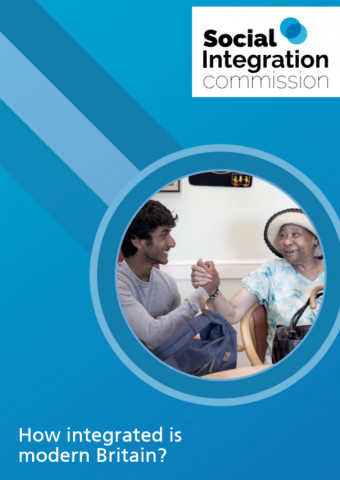
Resource details
PDF - 1.8 mb
A Wake-Up Call- Download Full DocumentPDF - 1.4 mb
Kingdom United? Thirteen Steps to Tackle Social Segregation- Download Full DocumentPDF - 1.6 mb
Author
Social Integration Commission
Related Member
 The Challenge
The Challenge
Publisher
The Challenge
Social Integration Commission
The Challenge provided the secretariat for the Social Integration Commission throughout 2014 and early 2015. The Commission, which was chaired by chief executive of the Royal Society of Arts (RSA), Matthew Taylor, explored the way in which people from different ethnic, age and income groups relate to one another in modern Britain, and made a set of practical recommendations to government, businesses, civil society organisations and individuals as to how we can create a more socially integrated and cohesive society.
1. How integrated is modern Britain?
This report explored the extent of social integration between people of different ages, ethnic backgrounds and income groups in modern Britain. It found that while many areas of the UK are highly diverse, this does not always correlate with being well integrated.
The report also showed how social integration applies to everyone, not only to ethnic minorities, and explored the integration of particular groups in our society, including young people, as well as the role of key institutions, educational settings and the workplace in promoting integration.
2. Social integration: A wake-up call
The Commission’s second report investigated the cost of social segregation to society and individuals, showing why a failure to tackle segregation will inhibit our ability as a country to tackle some of the major social and economic challenges facing the UK.
The report demonstrated that a lack of social integration makes it more difficult to reduce long-term unemployment and to strengthen community health and wellbeing. It estimated that taken together this impact costs the UK economy approximately £6 billion each year.
3. Kingdom United? – Thirteen steps to tackle social segregation
The Commission’s third and final report set out thirteen principles that it believes should underpin a healthy and well-integrated society. These principles focus not only on the role of government but on what schools, businesses, civil society organisations and individuals can do to build a more socially integrated society.
The principles include calls for public services to be designed to bring people together from different backgrounds, for housing and planning to promote social integration, and for businesses and public sector, leaders to recruit from diverse talent pools and encourage employees to connect with their communities.